- Home
- Linda Lael Miller
Austin Page 5
Austin Read online
Page 5
“I’m the Lone Bridesmaid,” Paige pointed out, calmer now but still discouraged. “I have nightmares about that dress.”
“To hear her tell it,” Julie told Libby, “neither of us has any taste at all.”
“Will you two stop talking as though I’m not even here?” Paige asked. “If you’d just agree to let me pick out my gown, since I’m the one who has to wear it—”
“What fun would that be?” Libby said to Julie. “We’re the brides, after all.”
Paige, as the youngest, flashed back to the old days, when the three of them were kids and her older sisters had tossed a ball back and forth between them, over her head, making sure it was always out of her reach. They called the game “Keep Away.”
The term seemed especially apt that night, though she couldn’t have explained the idea. If ever two people had had her back, no matter what the situation might be, her sisters were those two people.
As a kid, she’d tagged after them, wanting so badly to go wherever they went, do whatever they did, to be part of their circle.
Growing up, she’d loved wearing their clothes and mimicking their voices and copying their mannerisms. Now, they were marrying brothers. Was some unconscious part of her still trying to follow in Libby and Julie’s footsteps? The possibility was chilling to consider.
“That’s it,” Paige said decisively, though without rancor. “I’m dropping out of the wedding party. You both have plenty of friends, and I’m sure some of them are willing to make absolute fools of themselves at the ceremony by wearing some god-awful dress—lavender with a bustle, or yellow, with ruffles—”
“Maybe we shouldn’t have teased her,” Julie told Libby.
“Of course we should have teased her,” Libby said. “She’s our little sister.”
Julie looked speculative. “If you married Austin,” she ruminated, turning to Paige, “we could have a triple wedding, and you wouldn’t have to worry about hoops and lambs and bustles, because you’d be wearing a bridal gown.”
Paige flung both hands out from her sides. “Why didn’t I think of that?” she scoffed. “I’ll just marry Austin. To hell with my goals, my plans, my personal standards. To hell with everything!”
Julie reached out to touch Paige’s arm. “Honey,” she said softly, “we didn’t mean to upset you—”
Paige drew in a deep, sharp breath, let it out slowly. Shook her head. “It’s all right, I just—I just need some time alone, that’s all.”
Having said that, she left Garrett’s glam second-story apartment—one of three such spaces comprising that floor of the house and part of a third—and to their credit, neither Julie nor Libby called her back or tried to follow.
Downstairs, Paige crossed the main kitchen, retrieved her jacket and purse from the guest apartment and slipped out through the back door. It was dark, and stars glittered from horizon to horizon in great silvery splotches of faraway light.
On the other side of the courtyard wall, the kids were laughing, the dogs were barking, while the men talked in quiet voices.
Paige couldn’t make out their words, wouldn’t have tried. She needed quiet to collect her scattered thoughts, get some perspective. So she walked to her car—which she’d parked near the barn instead of in the garage as she usually did, flustered, at the time, because of Austin’s close proximity—got in and started the engine.
She drove down the long driveway, through the open iron gates, and out onto the highway, headed for town. She switched on the radio, choosing a classical spot on the dial instead of her favorite country station. Paige felt too raw to listen to country music at the moment, and she was woman enough to admit it, by God.
This last thought made her smile.
Drive, she told herself. Don’t think about him.
Between the soft piano concerto flowing out of the dashboard speakers and the semihypnotic effect of driving alone over a rural road, cosseted in purple twilight and under a canopy of stars, Paige was finally able to relax a little—and then a little more.
It was as though Austin McKettrick possessed his own magnetic field; the farther she got from him, the easier it was to breathe, to reason. To simply be.
Reaching the outskirts of town, Paige slowed down, drove automatically toward the house where she and Libby and Julie had grown up, with their dad. Libby had lived there, before and after Will Remington’s death from pancreatic cancer, with her dog, Hildie, and had run the Perk Up Coffee Shop to support herself.
Now, thanks largely to their mother, Marva, and her questionable driving skills, the shop was gone, along with the mom-and-pop grocery store that had once stood beside it, the lot totally empty.
Rumor had it that a bank would be built on the site, but as Paige bumped along the alley toward the detached garage behind the old house, she saw no signs of construction.
After parking her car in the narrow space the garage afforded, Paige got out, walked to the back gate and let herself into the yard.
Here, there were definitely signs of construction. The old cupboards, newly pulled away from the kitchen walls, stood near the porch, seeming to crouch under blue plastic tarps. The bathtub, so outdated that it was probably about to come back into style again, rested in one of the flowerbeds, with the matching green toilet perched inside it.
Paige sighed as she let herself in through the back door and drew in the scents of sawdust and new drywall. She flipped on the overhead light and was gratified, and a little surprised, that it worked.
The kitchen, twice its former size, boasted a new slate-tile floor and an alcove set into a semicircle of floor-to-ceiling windows, but it was a long way from usable.
Paige shoved her hands into the pockets of her jacket and moved farther into the house.
The living room was all new; the floors were hardwood and the molding around the edges of the raised ceiling had been salvaged from an old mansion in Dallas. There was an elegant marble fireplace, with an antique mantel, and the windows, like the ones in the kitchen, stood taller than Paige did.
Black against the night, the glass threw her reflection back at her—a trim woman in jeans, a T-shirt and a jacket, with dark, chin-length hair and the saddest eyes.
A lot of changes had been made, but this was still the place—the very room—where her dad had died.
It was the same house her mother had left, for good, when she and Libby and Julie needed her most.
The same house where she’d waited in vain for Marva to come back. Where she’d cried over Austin McKettrick and grieved after her father’s death.
Julie and Libby had both signed their shares over to her. And she would live here, a spinster, growing stranger and stranger with each passing year. Adopting dozens and dozens of cats, and playing bingo three nights a week, cutting beer cans into panels, punching holes in the sides and crocheting them together into hats.
Paige sank down onto the raised hearth of the fireplace and tried to make up her mind whether to laugh or cry. It was a tough choice.
CHAPTER THREE
AUSTIN WAS ONLY HALF LISTENING to his brothers’ conversation that evening, there in Garrett’s small, well-lit courtyard; a big part of his mind was on Paige. He’d heard her car door slam, listened as she started the engine, and it had been all he could do not to let himself out through the gate and run down the driveway after her, like some damn fool in a bad movie.
Lounging at the picnic table, watching the kids and the dogs dash around in the grass, Austin sipped his beer and savored the smoky scent of beef cooking on an outdoor grill.
Julie and Libby came down the back steps from Garrett’s terrace, Libby carrying a salad, Julie holding a tray of empty glasses and a pitcher of iced tea. While Austin couldn’t rightly think of a place he’d rather be just then, he wished Paige hadn’t left.
Remembering his manners—better late than never, he supposed wryly—he rose, crossed the yard and took the tray out of Julie’s hands.
Julie thanked him. She and Libby
exchanged glances, and both of them looked flustered.
Austin carried the tray back to the picnic table, set it down and turned to see both his brothers watching him.
When he realized that they thought he might have done himself permanent injury by carrying the tray, he gave a brief, ragged chuckle and shook his head.
Tate and Garrett had the good grace to look chagrined, and went back to turning steaks and talking ranch business.
The meal was served, and they all sat down at the long picnic table, kids and adults, with the dogs sitting quietly—and hopefully—nearby.
“Where’s Aunt Paige?” Calvin piped up, barely visible over the hamburger towering on his plate.
An awkward little silence fell, broken only by the distant lowing of cattle and the sound of a car somewhere down the road.
“Eat your supper, sweetheart,” Julie told her son gently.
“What about Aunt Paige’s supper?” Calvin persisted. “Is she going to have any?”
“I’m sure your aunt will be fine,” Julie assured him.
Silverware clinked against dishes, and the wind whispered in the limbs of the oak trees nearest the house. It was November, and turning colder, but thanks to a pair of outdoor heaters, the patio was warm enough.
“Maybe she ran away,” Ava, one of Tate’s twins, speculated, after chewing and swallowing a big bite of burger and bun.
Calvin took immediate offense, stiffening and glaring across the table at Ava. “Did not!”
“Hush,” Julie said, ruffling the boy’s hair.
Ava blinked behind her glasses and then jutted out her fine McKettrick chin, stubborn to the bone. “Did, too!” she insisted. “Maybe.”
“Grown-ups don’t run away!” Calvin said.
“Sometimes they do!” Ava argued.
“Ava,” Tate said quietly. “That will be enough.”
Ava subsided, but not graciously.
And her sister, Audrey, by far the more outgoing of the pair, spoke right up. “Our mom ran away,” she said. “She went all the way to New York City, and she’s never coming back.”
Another silence.
Then Libby, sitting next to Audrey, slipped an arm around the child. Over the girls’ heads, her gaze connected with Tate’s. “Your mother came to visit just last month,” Libby reminded her softly. “She took you and Ava to the ballet in Austin, and you stayed in a hotel.”
Tate sighed, pushed his plate away.
Austin felt a pang of sympathy, watching his brother. Tate’s first marriage, to the twins’ mother, had been a mistake from the beginning. He and Cheryl had been divorced since the twins were babies, but they still butted heads now and then over the kids. Cheryl, probably jealous of Libby, was always playing some kind of head game.
Just one more reason, as far as Austin was concerned, to stay single. And if the idea gave him a lonesome feeling, well, he concluded, nobody had everything.
Garrett, meanwhile, managed to shift Calvin onto his lap without making a big fat production of it. “Your Aunt Paige wouldn’t run away,” he told the boy, looking straight at Austin. “She probably just didn’t feel like having steak for supper.”
Austin felt color rise to his face. What was Garrett implying? That it was his fault Paige didn’t want to join the rest of the family for a meal?
Maybe it was his fault.
Austin decided he wasn’t all that hungry. He excused himself, as he’d been taught to do, having been raised by a good Texas mama, and left the table. Carried his plate inside and left it in the sink in Garrett’s kitchen.
Shep joined him on the short walk to the door of his own apartment, just down the hall from Garrett’s.
In the terrible days immediately after their folks were killed, nothing had made sense to any of the three brothers, and little wonder. They’d been eighteen, nineteen and twenty years old at the time. For the last ten years, they’d shared the main floor of the ranch house, where the big kitchen and the pool and the media room were, among other things, but back then, for reasons Austin couldn’t recall, they’d divided the rest of the house into three separate living areas.
As little kids, still on their first set of teeth, Tate, Garrett and Austin had shared one wide, long room, with lots of windows. When Tate entered tenth grade, the original space was sectioned off into three connecting squares, all the same size but distinctly separate.
Now, those rooms were gone, too, making up the wide corridor. Only the long row of tall windows remained.
Austin shoved a hand through his hair as he entered his own part of the house. The kitchen, living room and master suite were on that floor, while an office and two guest rooms shared the third with a huge attic.
Like Tate and Garrett, Austin had his own stairway.
God forbid they should have to share one.
Bleakly, he wandered to the windows, gazed out over the range, toward the main road. No question about it—he wanted to see headlights, and not just any headlights, either. He was looking for Paige’s car.
No sign of it, though.
He finally turned away, took in the stark simplicity of his living room and longed for the old days, when things had been different. When the folks were alive and they’d lived like a family, not a bunch of strangers.
The Silver Spur ranch house had been just that, a house, before the folks died; a big one, granted, but still a family home, with one kitchen, one living room, one dining room.
One turkey at Thanksgiving.
One tree at Christmas.
Now, it was more like a grand hotel, or an apartment building.
It sure as hell wasn’t a home anymore. Nobody really lived there; they were all just passing through, doing their own thing, on their way to somewhere else.
PAIGE WOKE UP LATE THE NEXT MORNING, having tossed and turned until all hours. Glancing at the bedside clock, she gasped, threw back the covers, and leaped out of bed. She showered quickly, put on black slacks and a simple white blouse, gave each of her cheeks a pass with the blush brush, and sped out into the kitchen.
Garrett and Austin were there, Garrett drinking coffee and reading a newspaper at the table, Austin leaning indolently against one of the counters, wearing nothing but a pair of rag-bag sweatpants, a case of bedhead and an obnoxious grin.
Shep, wolfing down kibble from a bowl nearby, spared her a glance but went right on eating.
“Did Julie leave already?” Paige asked. “I was supposed to drive Calvin to school this morning—”
Garrett smiled easily and rose from his chair, remained standing until Paige waved him back into his seat. “Julie didn’t want to wake you,” he said. “She took Calvin over to Libby and Tate’s to ride the school bus to town later on with the twins.”
Paige was aware of Austin at the periphery of her vision, lounging like he had nothing better to do than stand around in the kitchen on a weekday morning.
And maybe he didn’t.
“Have some coffee,” Austin said in an easy drawl that brought back all sorts of sensory memories, all of which were purely physical. “There’s no hurry now, is there?”
Garrett glanced back at his brother, and something passed between them, though Paige had no idea what.
“All right,” Paige said.
Austin moved to the coffeemaker, filled a mug, brought it to Paige. His hair was a mess. His chest was bare. His sweatpants were in disreputable shape.
And just looking at him made Paige wish she were lying flat on her back in his bed, instead of standing in a kitchen awash in morning light.
“Thanks,” she said out loud, taking the mug he offered.
“Guess I’d better throw on some clothes,” he said without the least trace of self-consciousness in either his tone or his manner. “As Dad always said, we’re burnin’ daylight.”
Paige didn’t respond. She couldn’t have responded, because her throat had closed.
With a nod, Austin left, heading up his set of stairs, the dog trotting behind him.
Garrett stood up again, gestured for Paige to take a seat.
She slumped onto the bench, curled both hands around the mug.
Garrett sank back into his chair. “Are you all right?” he asked.
Paige, realizing that she’d clenched her eyes shut, opened them and drummed up a smile. “Yes,” she said. “But Julie was counting on me to look after Calvin and I overslept and—”
“Calvin is fine,” Garrett said, covering her hand with his very briefly.
Paige sighed, and with the outward thrust of her breath, her shoulders relaxed. She felt the familiar rush of love for her only nephew; she could not have loved Calvin more if he’d been her own child.
Garrett cleared his throat subtly, and glanced toward the stairs Austin and Shep had mounted only moments before.
“Tate and I were wondering…” he began. But then his voice fell away, and he looked strangely shy for a man whose self-confidence seemed to rise from the cellular level.
“What?” she asked. God knew it had complicated her life when Libby and Tate had fallen in love and, soon after that, Garrett and Julie. Austin was their brother; it would, of course, be almost impossible to avoid coming into contact with him on a fairly regular basis.
Still, Paige liked her future brothers-in-law, and she was certainly glad they were making her sisters so happy.
Garrett scooted his chair in a little closer to the table. Lowered his voice, even though Austin was nowhere in sight and couldn’t possibly have overheard.
“Julie says you’re between jobs right now,” he ventured carefully.
Paige felt a brief sting of embarrassment; she’d worked since high school and being unemployed was new to her. Fortunately, the feeling passed quickly.
“I guess you could say that,” she said with a little smile. If Julie had confided that her sister was “between jobs,” she’d explained the circumstances, too, but Paige saw no reason to point that out. “I was supposed to replace one of the nurses at Blue River Clinic—Alice was planning on enlisting in the Navy. There was some kind of hitch, though, and it will be another few months before she starts her training.”

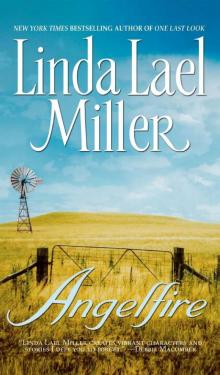 Angelfire
Angelfire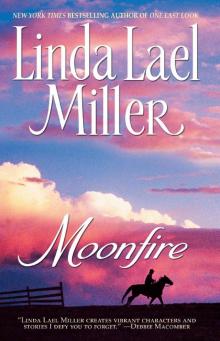 Moonfire
Moonfire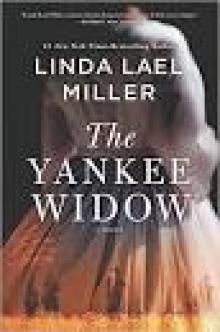 The Yankee Widow
The Yankee Widow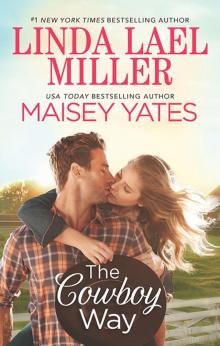 The Cowboy Way
The Cowboy Way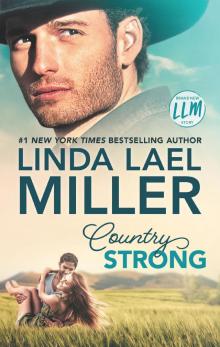 Country Strong--A Novel
Country Strong--A Novel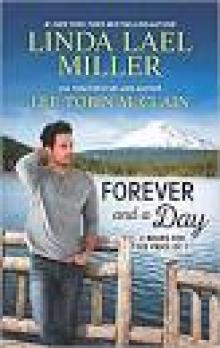 Forever and a Day
Forever and a Day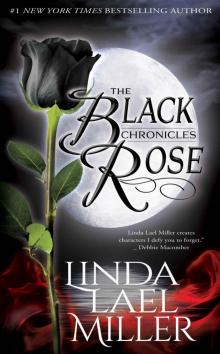 The Black Rose Chronicles
The Black Rose Chronicles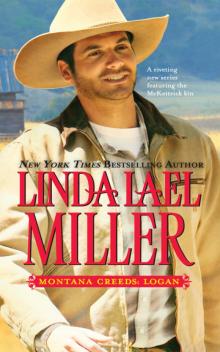 Montana Creeds: Logan
Montana Creeds: Logan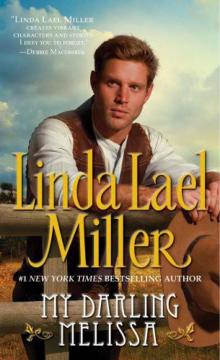 My Darling Melissa
My Darling Melissa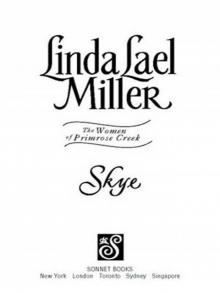 Skye
Skye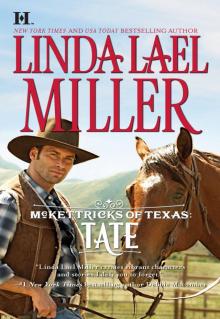 McKettricks of Texas: Tate
McKettricks of Texas: Tate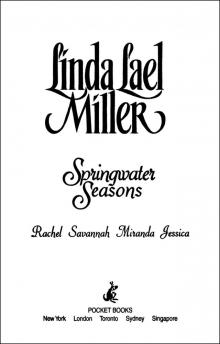 Springwater Seasons
Springwater Seasons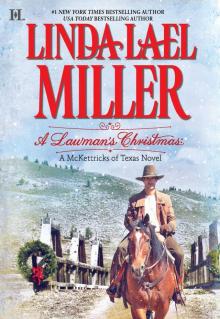 A Lawman's Christmas
A Lawman's Christmas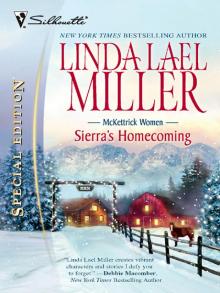 Sierra's Homecoming
Sierra's Homecoming![Parable, Montana [4] Big Sky Summer Read online](http://i1.bookreadfree.com/i/03/22/parable_montana_4_big_sky_summer_preview.jpg) Parable, Montana [4] Big Sky Summer
Parable, Montana [4] Big Sky Summer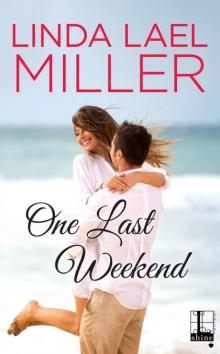 One Last Weekend
One Last Weekend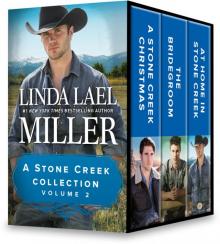 A Stone Creek Collection, Volume 2
A Stone Creek Collection, Volume 2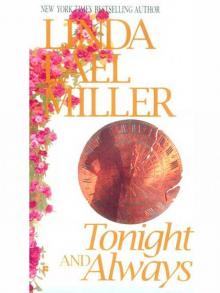 Tonight and Always
Tonight and Always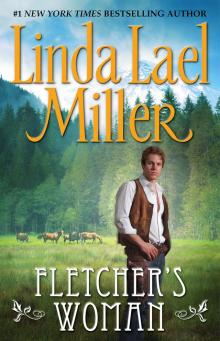 Fletcher's Woman
Fletcher's Woman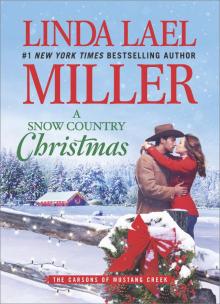 A Snow Country Christmas
A Snow Country Christmas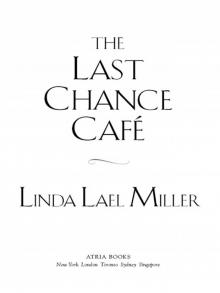 The Last Chance Cafe
The Last Chance Cafe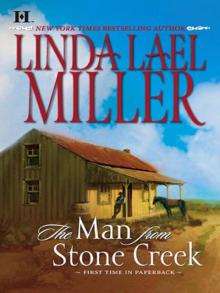 The Man from Stone Creek
The Man from Stone Creek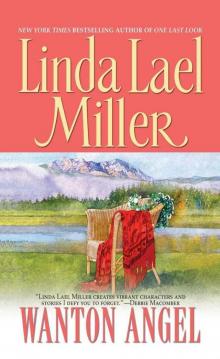 Wanton Angel
Wanton Angel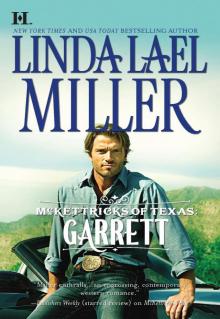 McKettricks of Texas: Garrett
McKettricks of Texas: Garrett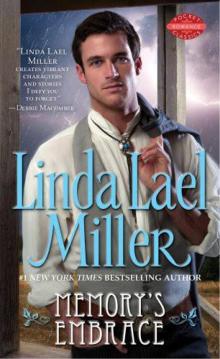 Memory's Embrace
Memory's Embrace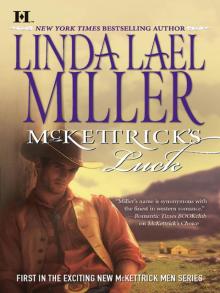 McKettrick's Luck
McKettrick's Luck Pirates
Pirates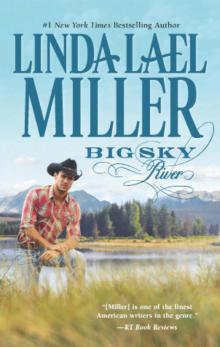 Big Sky River
Big Sky River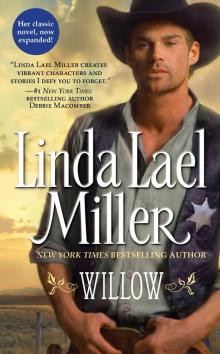 Willow: A Novel (No Series)
Willow: A Novel (No Series)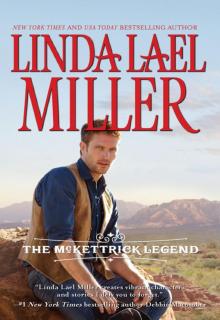 The McKettrick Legend: Sierra's HomecomingThe McKettrick Way (Hqn)
The McKettrick Legend: Sierra's HomecomingThe McKettrick Way (Hqn)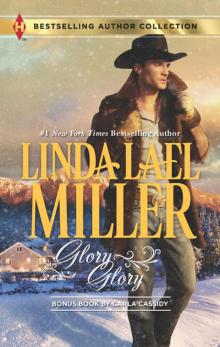 Glory, Glory: Snowbound with the Bodyguard
Glory, Glory: Snowbound with the Bodyguard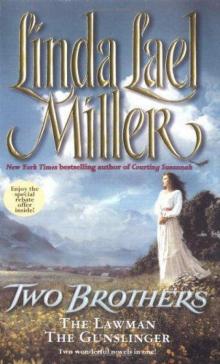 Two Brothers
Two Brothers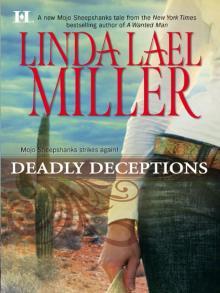 Deadly Deceptions
Deadly Deceptions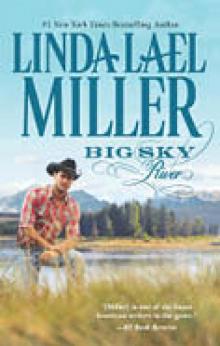 Big Sky Secrets
Big Sky Secrets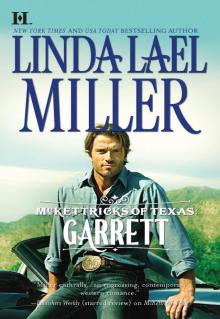 Garrett
Garrett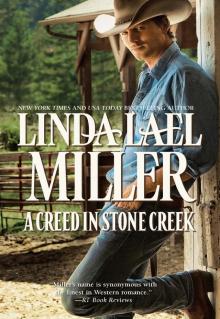 A Creed in Stone Creek
A Creed in Stone Creek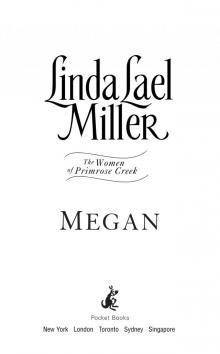 Megan
Megan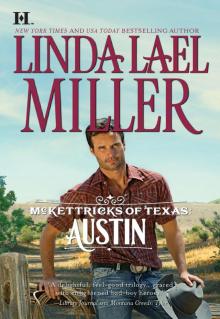 McKettricks of Texas: Austin
McKettricks of Texas: Austin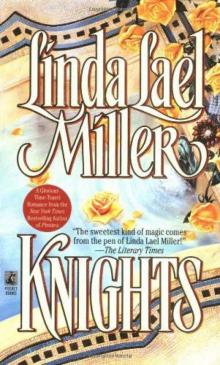 Knights
Knights High Country Bride
High Country Bride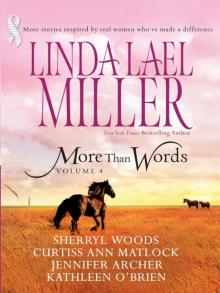 More Than Words Volume 4
More Than Words Volume 4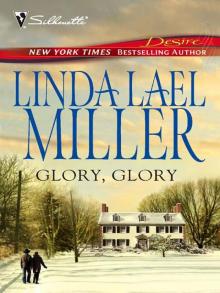 Glory, Glory
Glory, Glory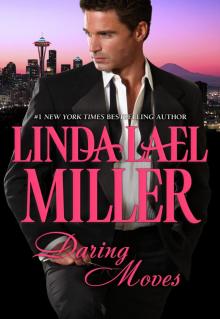 Daring Moves
Daring Moves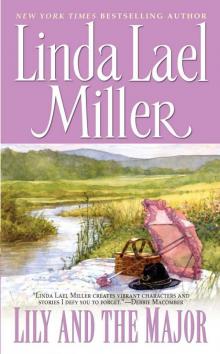 Lily and the Major
Lily and the Major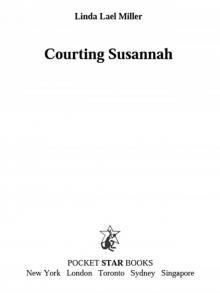 Courting Susannah
Courting Susannah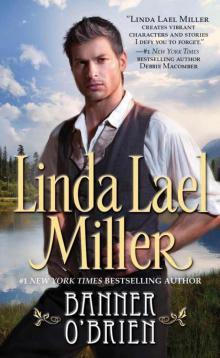 Banner O'Brien
Banner O'Brien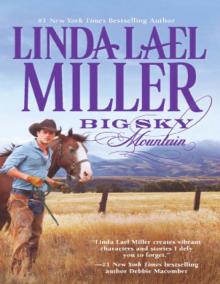 Big Sky Mountain
Big Sky Mountain Linda Lael Miller Bundle
Linda Lael Miller Bundle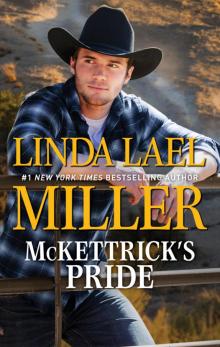 McKettrick's Pride
McKettrick's Pride A Stone Creek Collection Volume 1
A Stone Creek Collection Volume 1 A Wanted Man
A Wanted Man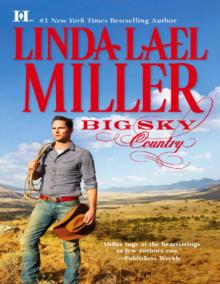 Big Sky Country
Big Sky Country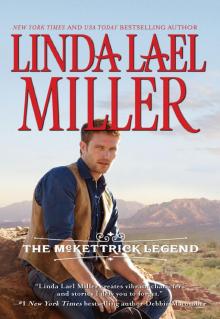 The McKettrick Legend
The McKettrick Legend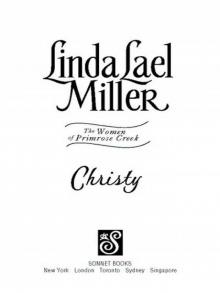 Christy
Christy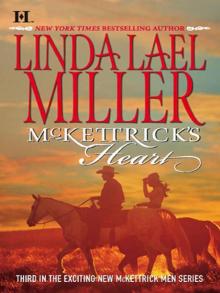 McKettrick's Heart
McKettrick's Heart Resurrection
Resurrection Arizona Heat
Arizona Heat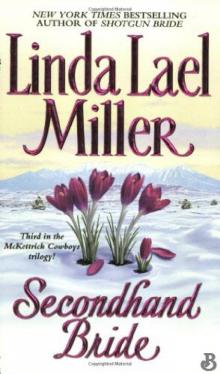 Secondhand Bride
Secondhand Bride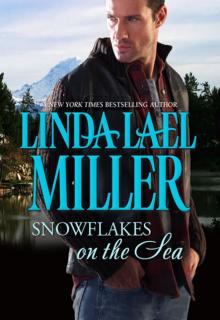 Snowflakes on the Sea
Snowflakes on the Sea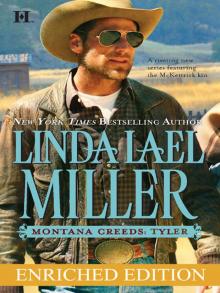 Montana Creeds: Tyler
Montana Creeds: Tyler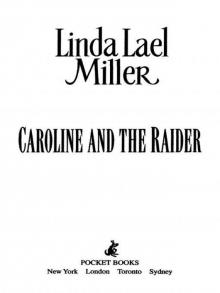 CAROLINE AND THE RAIDER
CAROLINE AND THE RAIDER A Proposal for Christmas: State SecretsThe Five Days of Christmas
A Proposal for Christmas: State SecretsThe Five Days of Christmas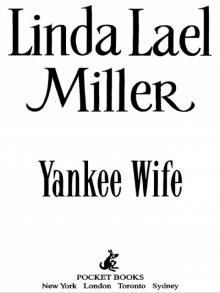 Yankee Wife
Yankee Wife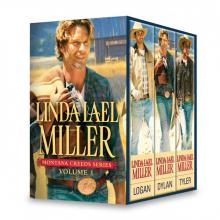 Linda Lael Miller Montana Creeds Series Volume 1: Montana Creeds: LoganMontana Creeds: DylanMontana Creeds: Tyler
Linda Lael Miller Montana Creeds Series Volume 1: Montana Creeds: LoganMontana Creeds: DylanMontana Creeds: Tyler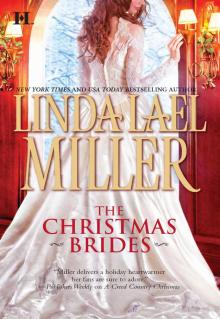 The Christmas Brides
The Christmas Brides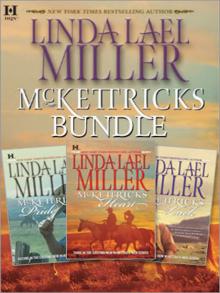 McKettricks Bundle
McKettricks Bundle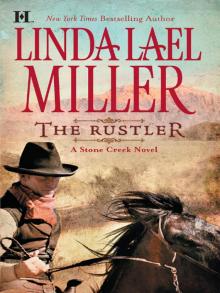 The Rustler
The Rustler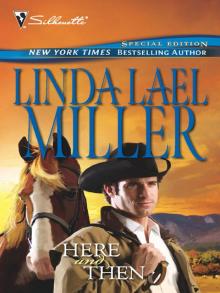 Here and Then
Here and Then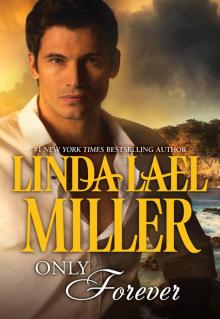 Only Forever
Only Forever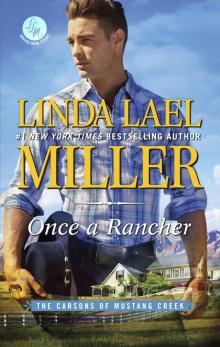 Once a Rancher
Once a Rancher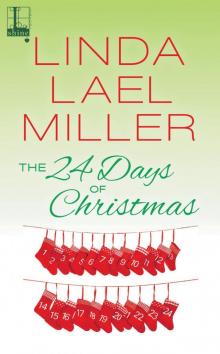 The 24 Days of Christmas
The 24 Days of Christmas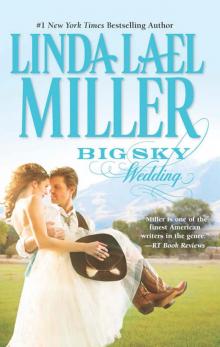 Big Sky Wedding
Big Sky Wedding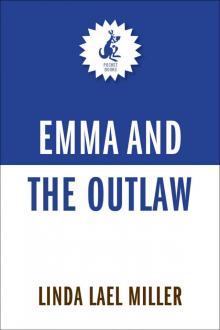 Emma and the Outlaw
Emma and the Outlaw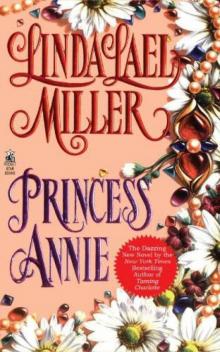 Princess Annie
Princess Annie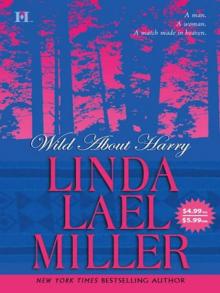 Wild About Harry
Wild About Harry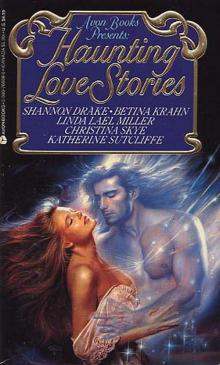 That Other Katherine
That Other Katherine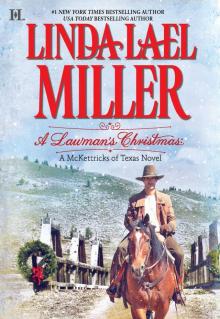 A Lawman's Christmas: A McKettricks of Texas Novel
A Lawman's Christmas: A McKettricks of Texas Novel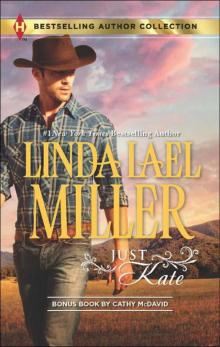 Just Kate: His Only Wife (Bestselling Author Collection)
Just Kate: His Only Wife (Bestselling Author Collection)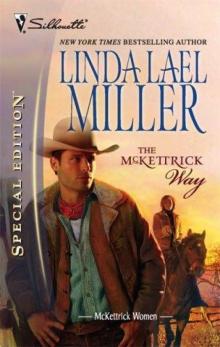 The McKettrick Way
The McKettrick Way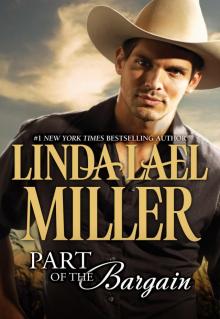 Part of the Bargain
Part of the Bargain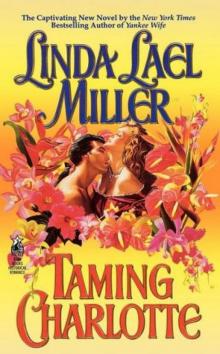 Taming Charlotte
Taming Charlotte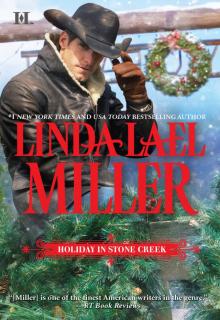 Holiday in Stone Creek
Holiday in Stone Creek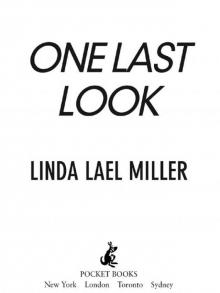 One Last Look
One Last Look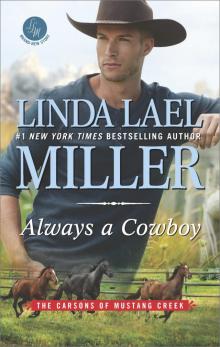 Always a Cowboy
Always a Cowboy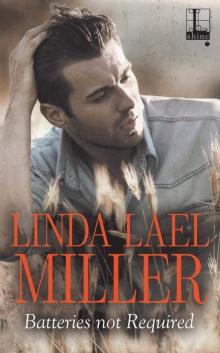 Batteries Not Required
Batteries Not Required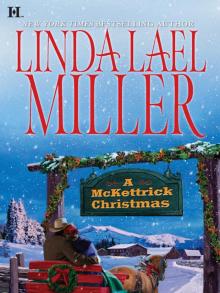 A McKettrick Christmas
A McKettrick Christmas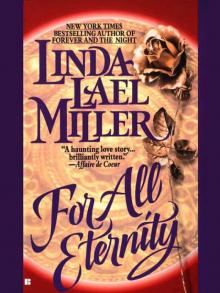 For All Eternity
For All Eternity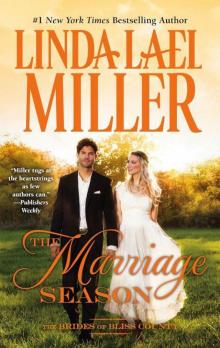 The Marriage Season
The Marriage Season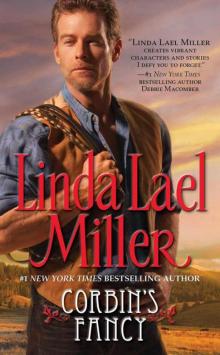 Corbin's Fancy
Corbin's Fancy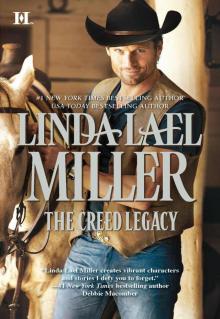 The Creed Legacy
The Creed Legacy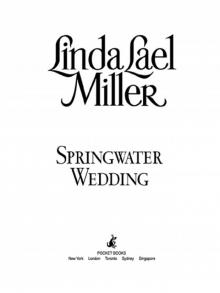 Springwater Wedding
Springwater Wedding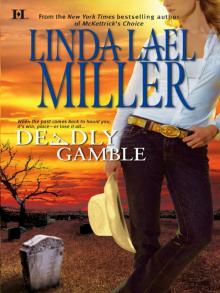 Deadly Gamble
Deadly Gamble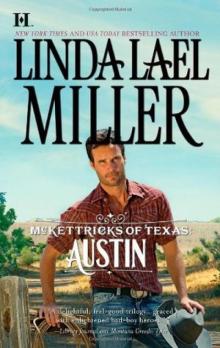 Austin
Austin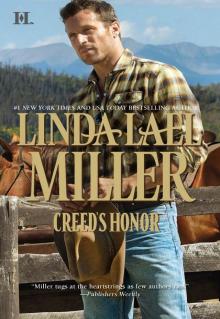 Creed's Honor
Creed's Honor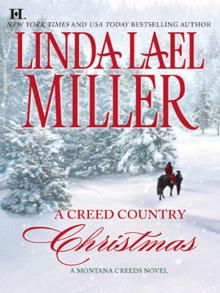 A Creed Country Christmas
A Creed Country Christmas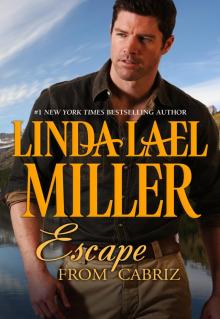 Escape from Cabriz
Escape from Cabriz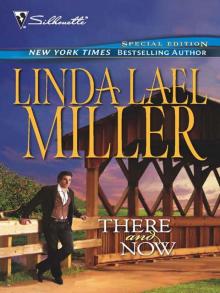 There and Now
There and Now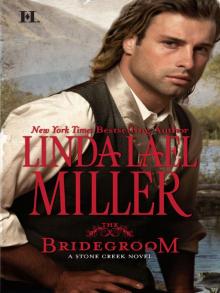 The Bridegroom
The Bridegroom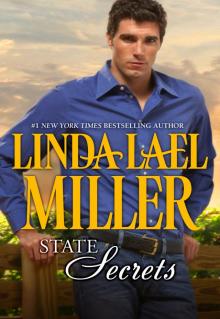 State Secrets
State Secrets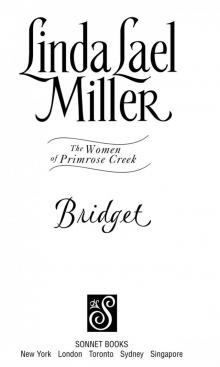 Bridget
Bridget